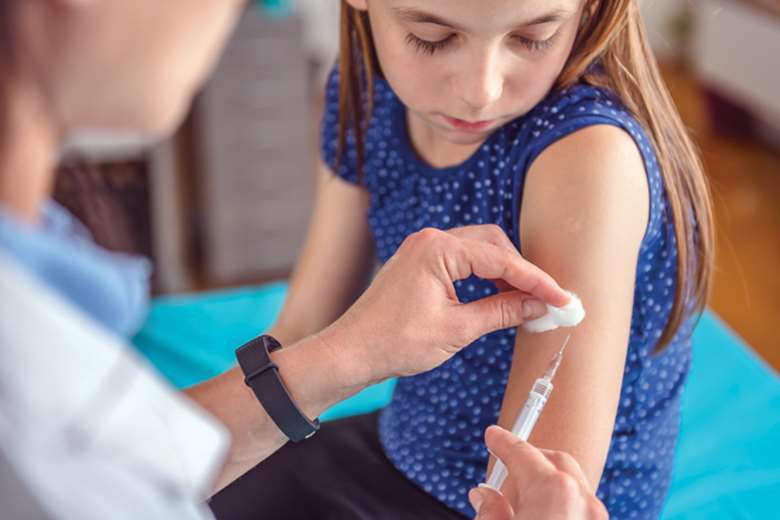Early help culture pays dividends in Lincolnshire
Derren Hayes
Monday, August 26, 2019
Early help strategy cuts across all services for children and young people in the county.

- Multi-agency working ensures high-quality assessment and early interventions before problems worsen.
- Approach is instrumental in council's low care rates and "outstanding" Ofsted rating.
ACTION
Ofsted's recent inspection report on children's services in Lincolnshire praised the breadth and quality of early help work across the department, which it says is making a "tangible and positive difference to the lives of children and families".
The report details examples of projects and practice that are designed to support vulnerable children and families and prevent problems escalating out of control. This includes work at the front door to children's services, with children on the edge of care and alongside partner agencies including health and education.
Janice Spencer, Lincolnshire acting director of children's services, says the development and implementation of a number of council-wide early help strategies since 2013 have been instrumental in prevention being embedded across the department. The most recent strategy, covering the period 2019-21, is underpinned by a commitment to "identify and provide children and young people at risk of poor health and wellbeing, with the right support, at the right time by the right person".
The strategy puts the responsibility on all practitioners working with children and young people to identify problems and potential unmet needs of individuals irrespective of whether they are providing services. Practitioners in universal services - GPs, health visitors, children's centres staff, childcare workers or teachers - are best placed to identify children at risk, although the strategy also emphasises that it wants families to self-identify when they need support.
An early help assessment tool, built upon an ethos of Appreciative Inquiry, is used by all agencies in Lincolnshire to "open a conversation with families about worries and strengths" to ascertain what early help is needed and when. A team around the child (TAC) is created with a lead professional appointed to co-ordinate the multi-agency response. They are supported by early help consultants - who, in 2018, provided specialist advice on more than 2,000 occasions and have, Ofsted found, boosted knowledge among practitioners and agencies.
"With the guidance and support of early help consultants, partners have become more confident in undertaking early help assessments with families," the Ofsted report states. "The guidance has also increased the proportion of early help plans led by partners when a co-ordinated response is needed to improve children's circumstances."
A reflection of how integrated early help has become in Lincolnshire is that three quarters of TACs are led by schools, says Spencer. She cites a recent example of an early help assessment completed by a staff member on an adult stroke ward who wanted to ensure support for the children of a man they were treating.
"The good-quality assessment by the person who was aware of issues enabled the needs to be identified and support to be quickly put into place to avoid any escalation of issues," she explains.
There is an integrated front door to the social care service. This sees locality teams comprising of social workers, early help workers and health visitors undertake assessments together and leads to "effective" support put in place, according to Ofsted.
"A key element to this success is thoughtful direct work by early help practitioners with children and families, using a range of tools," the inspection report states. "Effective relationship-based approaches are having a positive impact on families, resulting in smaller problems being resolved to prevent concerns or difficulties increasing."
Early help workers also contribute to the emergency duty team to ensure prevention has a voice when children are in crisis, and newly developed Future4Me Service which supports adolescents who are at risk of coming into care and/or entering the criminal justice system and who may be vulnerable to exploitation.
"We focus on early help across the board," says Spencer. "We see it as an ‘invest to save' approach that will deliver efficiencies and make a difference to children and families."
IMPACT
Ofsted rated Lincolnshire children's services "outstanding" at the recent inspection, and particularly praised the commitment leaders had shown to delivering high-quality early help services and developing a prevention-focused culture.
Looked-after children rates were 45 per 10,000 children in 2018, the same rate as in 2015 and a third lower than the England average - which over the same period has risen from 60 to 64 per 10,000 children. Work around early help has been a key factor in keeping care rates low, states Ofsted.
The council also attributes the fall in child in need and child protection plans to this.




